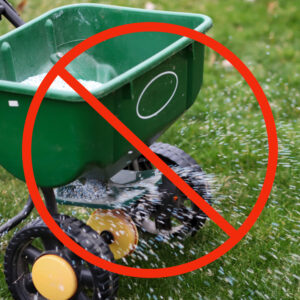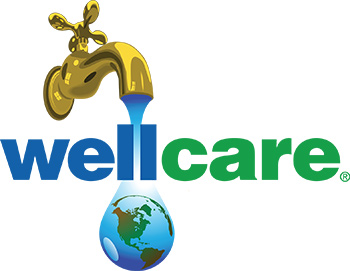 Pests such as weeds, insects, molds, and fungi can damage your lawn and garden. Pesticides can help treat certain types of pests but are not always the best or only solution. If pesticides are used, proper use and disposal are necessary to prevent harm to people, pets, and plants, and to protect the air, soil, and water from pollution.
Pests such as weeds, insects, molds, and fungi can damage your lawn and garden. Pesticides can help treat certain types of pests but are not always the best or only solution. If pesticides are used, proper use and disposal are necessary to prevent harm to people, pets, and plants, and to protect the air, soil, and water from pollution.
Likewise, fertilizers can be beneficial to your lawn and garden. However, many fertilizers contain nitrogen, which can convert to harmful nitrate. Careful use of fertilizers can help reduce the chance that nitrate will leach into your groundwater.
Preventing Contamination in Your Well
Pesticides and fertilizers can reach aquifers through the soil by way of rain or snow recharge. Additionally, if pesticides or fertilizers are spilled or misused near a well, they can reach your well water. Some sources say spills within 25-50 feet of wells have a greater risk for contamination; others say pesticides and fertilizers should not be handled or stored within 100 feet of a well.
You can take steps to prevent the potential for pesticide contamination of your well. First, consider whether a pesticide is the best method for treating your pest problem. Alternatives such as baits and traps are safer than pesticides.
Non-chemical pest control methods include hand picking pests from leaves. Prevention techniques include keeping your grass height no shorter than 2.5 inches to discourage pests and shade weeds, and rotating plant position periodically to minimize the spread of disease. Keep in mind that some insects, such as praying mantises and ladybugs, are beneficial to plants, by helping to kill more harmful insects and organisms.
Continue reading our information sheet for additional measures you can take in and around your home.
Additionally, your state may also have laws related to the use and disposal of pesticides and fertilizers. Check with your state’s fertilizer and pesticide regulatory agencies or call the National Pesticide Information Center at 1-800-858-7378.
